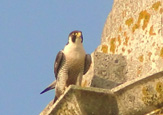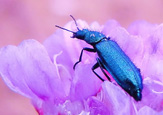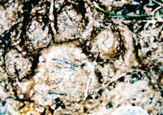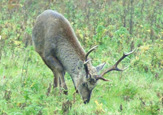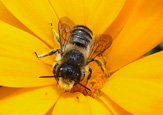Jonathan McGowan Biography (Part 1)

Childhood
Since I was a teenager and being fascinated with natural history and the world around me, I have been curious. Curious in all manners, I see myself as a person whom was not conditioned by other people as most people are. I was myself. I lost trust in humanity when very young. Being one of twins and living my childhood in care, away from proper loving parents, and being moved around with all the baggage that goes with that, I was different.
I was subject to pain and suffering from an early age. Before the age of two, I was abused and suffered broken bones, and as far as I believe had a near death experience. I also had one or two close encounters with death later in life. I also suffered at the hands of abusers, people who were paid money to look after me. The world seemed indifferent as to what was going on, and continued to be many years after. I learned that mankind was dishonest, greedy and did not care.
I was fortunate though to live always in the countryside and not just any countryside. I lived in some of the most wonderful parts of Dorsetshire in southern England, the place where I have always lived since. When I was young and in foster care, I was put in different placements around the county and so I experiences different localities, people, schools and countryside. I experienced different habitats such as the rolling chalk downs, and the large lowland heaths. I experienced the coastline, sandy and full of people, rocky and full of smelly sea weed and crabs. I spent a lot of my time with farming people, helping with cattle, watching the daily milking, helping out with chickens, ducks, sheep, pigs.
In my later childhood I was to keep many animals, from small fish that I caught myself in the river Stour, to snakes, newt’s frogs, birds, tortoises, ferrets, rabbits, and many insects. I always had animals of some kind. I even kept animals hidden under my bed, or in back garden sheds. Even at some schools I persuaded the teachers to keep my slow worms or caterpillars. I wanted to know all about nature, how it worked and our relationship with it. When just twelve I was fishing for hours in rivers, often in the sea. I was cycling for many miles and walking many a hill. I was witness to many a marvel of nature.
At the age of fifteen, I was out at night time, watching badgers, owls and deer. I also started to see other strange things. I saw large none native cats and started to learn about their habits. I had dreams of going to far flung corners of the earth studying strange animals. The usual sort of stuff kids dream about.
I had a very adventurous childhood. My youth was even more so. I was involved with the hunting and shooting community also, but was a bit disillusioned with them as I was also a conservationist. I was passionate about protecting the world we lived in. I hated cruelty to animals as I had been subject to that at various times during my childhood. I did respect hunting though for food.
Spirituality and Religion
By the age of thirty, I had lived in many parts of my lovely county. I loved it and felt a deep attachment to it. I did a lot of it later in life, but even that changed as I etched my way along my spiritual path of growth. Being interested in humanity, and the reasons behind everything, I had developed a strong quest for answers.
I was very religious when young, but I questioned it later, not to dismiss it out of hand, but to put things into perspective. I looked at our world with open mind and logic. I was a seeker of truths. Many questions needed to be answered such as why were we here, does god exist? How many galaxies were there? Was there intelligent life elsewhere in the known universe? Was man just a glorified ape and subject to same laws of physics as every other animal, or were we somehow different? To me these questions are of fundamental importance to my philosophy of life.
I realized that humans were very out of balance. We work in extreme ways and think in extreme ways. There seems to be no middle ground. Most people think black and white, without noticing the millions of shades of grey in between. I hope to add a different part to my website in the near future. A site dedicated to these questions and answers. I find the subject the most important aspect in all of our lives.
Watch this space!
Road Kill Animals
I am sure that the biggest killer of animals in Britain at the moment is vehicles on the road, set aside the deaths caused by poisons in the environment, and deforestation. I have come to conclusion that a quarter of all animals born or hatched every year succumb to the road vehicle. There are so many roads, too many cars and too many people driving. Young people seem to think that it is a necessity to jump into a car after they leave school or even before.
I cycled for most of my life. I only got a car when my failing health forced me to. I must admit that it changed my life and enabled be to live a life of freedom, friendship and involvement, but I would hate to think that the price I pay is the environment in which I live. The truth is, is that I have done so much good for people and the environment by having a car in one way, but obviously not in another way. I drive a lot and so see the damage caused by man, the thousands of dead animals on the road, most just mashed into the tarmac.
What really bothers me is the attitude of people, the speed in which people travel and unconcern that they are speeding through the land in which belongs to other life forms. These life forms have nourished us from time immemorial. The plants, flowers, bees, spiders and birds are all so important to us. The rabbits and deer play a vital role within the natural order of life; We would not be here if it were not for them. Yet we seem to mow them down and end their lives without any concern.
Why is this? What makes man seem that he is more important that any other animal? I know that religion plays a big part, but also think that there is far more to it. Other animals feel pain just like we do. They have feelings, they have young to feed, they have memory, they love another. We are not unique in that way.
Just because we cannot communicate with other animals does not mean that they are lesser. Indeed animals may try to communicate with us in the ways in which they are capable, but we choose to ignore them. We are blinkered and oblivious to anything other that what affects us immediately, in our own small human world. We cannot even look to the future and see the possibilities. We seem to be living for today, to be destroyed by tomorrow.
Many common people may scorn at the fact that I eat road killed animals. There are several reasons as to why I do it.
- I like to eat meat.
- I prefer to eat organic.
- As a naturalist, and taxidermist, I would pick up an animal corpse and use it anyhow.
- I disagree with most modern farming methods, but would still like to eat some meat.
- There is much more variety that the basic beef, pork, lamb, turkey, duck and chicken.
- Scavenging the roads for dead animals is rewarding and I get a sense of hunting, something that many of us need and use in other ways within our daily lives.
- The organic meat tastes much better, it is usually fat less, and there are no additives.
- Autopsies on wild animals can be interesting, one can learn a great deal about all manner of things.
- The art of butchery is interesting, rewarding, and is important.
- The removal of many wild animals prevents other scavengers from becoming road kill themselves.
- Many species especially certain birds of prey may have rings on them so data can be passed on to relevant organizations.
- The skins of animals are often preserved and re mounted as taxidermy. They then are used as teaching aids, or sold, or used for blind folk to touch.
I do not recommend collecting road kill to other people, but if I have encouraged some people to do it then please be sensible about it.
- Eating road kill can save a lot of money, but also cost the environment in fuel consumption, if a car is used, and journey is made purely to look for dead animals.
- Collecting dead animals from the roadside can be very dangerous, one can be a hazard to other road users and great care must be taken. I use a high visibility jacket when needed. I only park vehicle where safe to do so. If I see a dead animal and would like to retrieve it, I only stop if it is safe to do so and other drivers can see me from both directions with my hazard lights on. Respect and consideration to other road users is essential at all times. If there is any risk of an accident then I leave the animal and try to retrieve it on foot, or I simply forget it.
- Preparing road kill is time consuming. Most killed animal are whole at first, they maybe still usable at varying degrees of tyre strike, but are usually mucky under the skin.
- There can be diseases to be aware of but generally all animals are safe to eat when cooked. Certain animals must check for disease and obvious signs of illness. It is best to leave unhealthy looking animals.
The Highway Code suggests that drivers do not stop to remove carcasses from roads or even stop or slow down to prevent an animal from being hit. I find this most alarming and I believe that this needs to change. I think that vehicle drivers should be allowed to slow down and brake for animals crossing the roads. We should not put our possible safety before the lives of innocent animals.
Surely the key is to always assume that a wild animal may cross the road, and that we are unnaturally speeding through the domain of wild animals and to be on the look out for such. Most animals are hit at speeds greater than thirty miles an hour.
Many country roads should have more hazard signs put up in relation to wild animals crossing, and maybe if the signs had depictions of badgers, hedgehogs, horses, ducks and toads instead of the usual deer , then maybe it would jolt peoples minds a bit. There should also be more consultation into new road building, as if we even need any more! Tunnels must be made underneath areas with high mortality rates among badgers and deer.
In areas like the New Forest, near to where I live, speed limits are forty miles an hour away from the main fences off roads. People do not abide by these rules and many cattle and ponies are killed or injured every year. Dozens of wild deer are also killed. Something certainly needs to be done. Most animals are killed at night.
We as a nation now live nocturnally as well as diurnally. We seem to drive at all hours and the animals that had become nocturnal in the past to escape from us are now hit from another angle. People drive throughout the night and at high speeds. Most badgers, hedgehogs and amphibians are now threatened with local extinction just because of our obsession with driving.
This has other knock on effects such as stress and disease which may spread to humans in the future. There is no mammal, bird, reptile, amphibian or insect that is not killed on our roads on a regular basis. This is very sad. Most animal deaths can be avoided.
The majority of deaths are accidents. Many nasty people run over animals on purpose. Many people are also too clean living and lazy to get out of the vehicle and remove the poor animal from the road. Just moving it aside or on the bank will be a job well done. Please think about it! Most people think roads as simply a route from A to B and do not seem to know that the countryside is living with all manner of animals that need to move about and that includes roads crossing through their home areas.
A lot of people are very silly. They may see a dead animal by the road and wonder what the cause of death was! Can you believe it? I have had many people ask me as to why an animal is dead. I have got a few things to say to these morons. Open your mind, Get a life, learn about it and do something worthwhile.
There are a few exceptions, sometimes illegally killed protected species such as birds of prey and badgers, are dumped at roadsides by people in a desperate bid to cover their nasty deeds.

